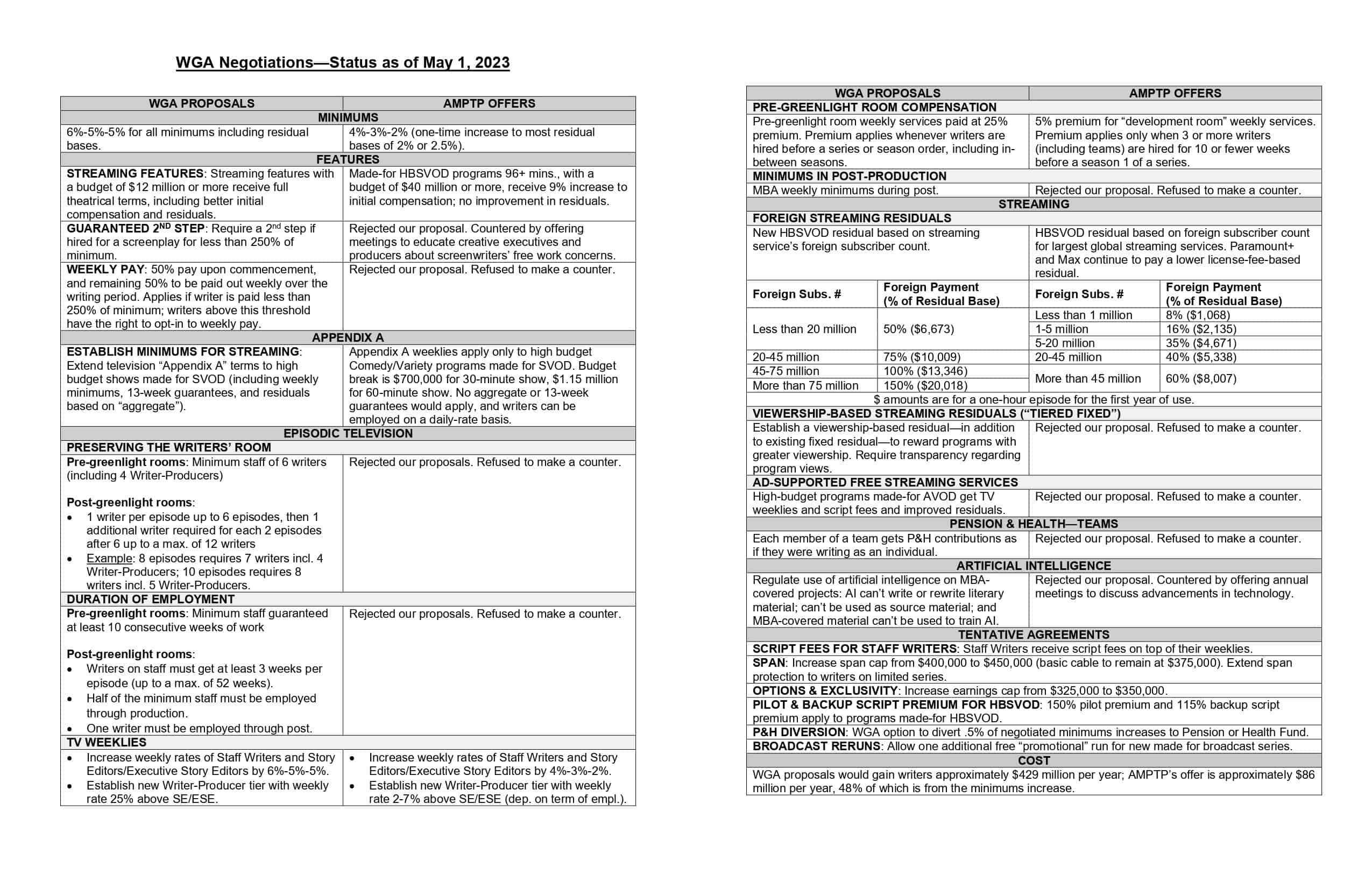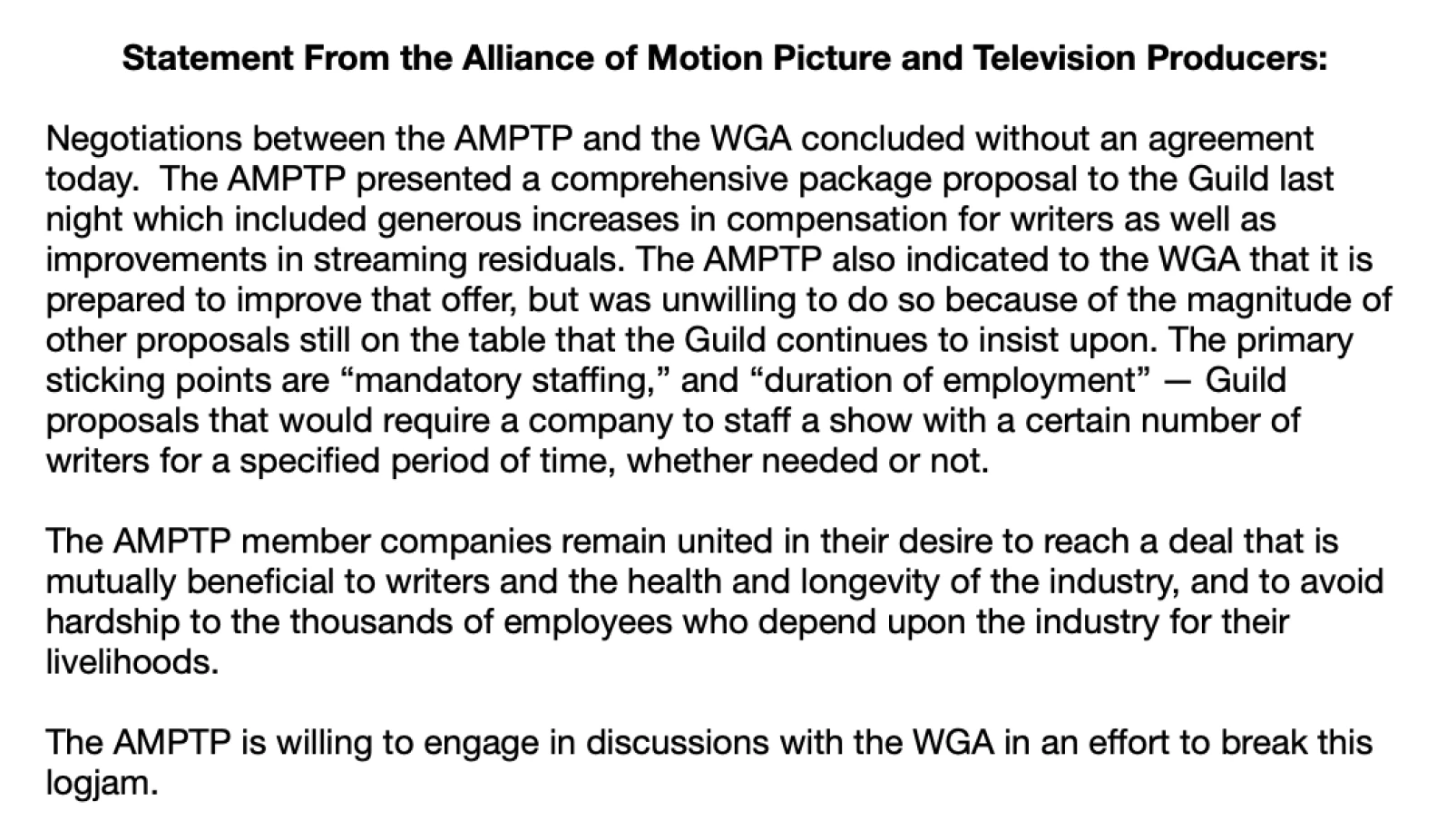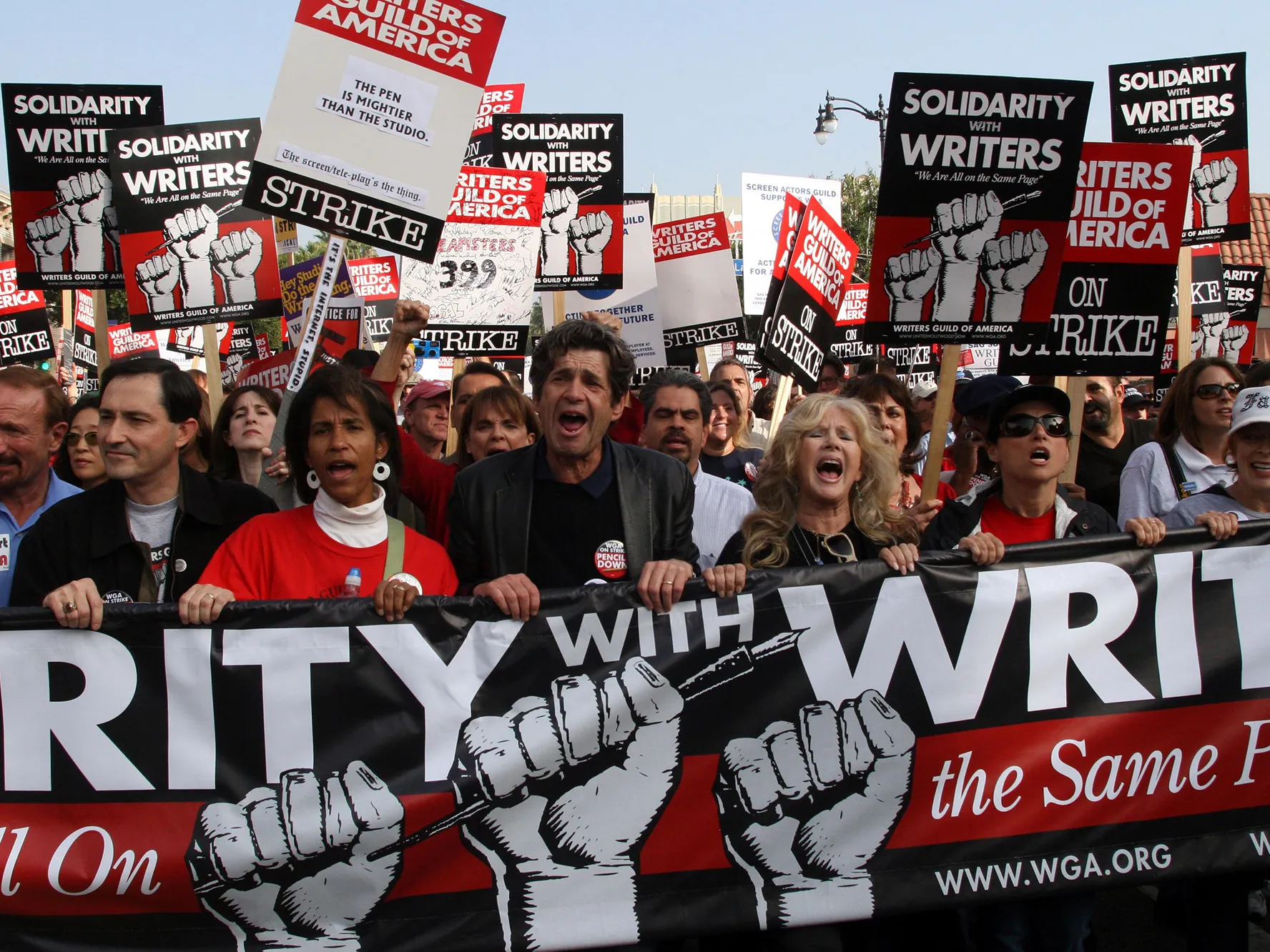Love “Saturday Night Live” and its hilarious skits that make you cry laughing? Love late-night talk shows like “The Tonight Show Starring Jimmy Fallon” and “Jimmy Kimmel Live!”? Love Eleven and the rest of the Stranger Things crew? Love laughing to yourself during an episode of Hacks? I love iconic lines like “You can’t spell America without Erica.”?
Well, if you do, you’re in for a bit of bad news. The writers of your favorite shows, the ones that penned the jokes from the sitcoms you binge-watch, the ones that were there at the inception of the TV characters close to your heart, have ceased to work for the time being. Rightfully so.
While millions across the world find entertainment in the shows they’ve built with their work, writers receive a meager wage, completely disproportionate to the impact they have on the profits companies like Disney, CBS, and Paramount Pictures rake in through the shows. It is only right that they rally for raised wages and a reformed contract with terms and conditions that addresses our increasingly AI-dominated world and the currently popular way of watching shows, which is streaming.
The writers had been in talks with AMPTP to better their contracts and working conditions since March. Doing what big corporate houses do, the media companies responsible for the writers’ working situations were reluctant to cater to the well-being of the writers and needless to say, talks completely fell apart, initiating a strike from the Writers Guild of America (WGA) for the first time in 15 years.
As of today, we are now more than three weeks into the strike held by the WGA. A major percentage of Hollywood has been brought to a standstill, owing to the foundation of their existence, that is, the writers continuing their strike for justice.
Also Read: WGA Writers Go On A Strike, Halting TV Show Productions
WGA-AMPTP Talks
For a little bit of context, WGA is a labor union with two separate union divisions that are run individually. However, they identify and function like a single body when it comes to contract negotiations and crucial decisions like going on strike, much like they are doing right now. The Alliance of Motion Picture and Television Producers (AMPTP), on the other hand, is a sort of association made up of production companies like Netflix and Disney that operate together during contract negotiations with unions like the WGA.
Preliminary to their contract expiry date on May 1, 2023, talks between the AMPTP and the WGA commenced on March 20 this year. Negotiations went on for about a month and a half, but no definite contract was drawn up, and no agreements were made between the two.
The AMPTP went into the talks claiming to put their best foot forward to ensure a fair contract for everyone, but, in the end, the WGA released a statement stating the companies dismissed a lot of their conditions and walked away. On the contrary, the AMPTP claims not to have done so.
Also Read: Stranger Things Season 5 Release Date in 2023? Let’s Take A Look
What Are WGA’s Demands?
The WGA’s “pattern of demands” is clearly listed on the strike website, along with a document listing their proposals and AMPTP’s proposals which were made in response to theirs.
WGA’s demands addressed chief issues they faced in recent times, like less share in residuals and the decline in writers’ wages in the past few years.
Let’s have a glance at the key issues they brought up in their proposals.
The primary issue for the WGA was their members’ struggle for adequate compensation. Proven by statistics, writers’ wages have declined over fourteen percent in the last few years, and some writers have had to juggle a part-time job with their writing career to support themselves. Considering how much they contribute to a show’s or movie’s success, they demanded a raise in the minimum compensation, an increase in weekly compensation, and a bigger share of residuals regardless of whether they work in content that is streamed or released theatrically.
Mini-rooms” were another issue they wanted to put an end to this year. Understaffing has been a practice recently, and it has put the jobs of writers at risk with a lack of scheduled and guaranteed work. To combat the problem, the WGA put across proposals for mandatory staffing during all the stages of a show’s development, regardless of its “greenlight” status.
Pension and Health Benefits for all the writers were another point included in their proposal.
With the entry of Artificial Intelligence and its ability to generate content, the WGA demanded strict regulations on the use of AI in the industry, wishing to make sure their jobs would not be in jeopardy. They also put forward the idea of being allowed to use AI in their work under certain conditions and restraints.
Also Read: How To Get AI Manga Filter On Tiktok? Steps You Need To Follow

Also Read: Netflix’s Queen Cleopatra Casting Creates an Uproar in Egypt
How Did The Talks Break Down?
The AMPTP-WGA negotiations clearly did not go over well, and we really only can speculate what the breaking point was. Both sides claimed to be receptive and open to agreements but are yet to find common ground. Most signs and evidence point to the AMPTP being the first one to walk away, resulting in a breakdown in negotiations.
After the failure to reach an agreement, the AMPTP released a statement regarding its position on the issue. They claimed that they presented the WGA with a “comprehensive package proposal” and that they were “generous” in their offers to increase compensation. They went on to suggest that the Guild was being unreasonable by insisting on their proposals and that the association was accepting enough. They wrapped up their statement by saying that they are always ready to negotiate further and reach a deal that ensures the welfare of the writers.

Also Read: Why Was Scorpion Cancelled? The CBS Series Failed To Impress?
This became a whole different story when it was told through the words of a few members of the Guild. They dismissed claims that the AMPTP was open to compromise and two-sided negotiations. Instead, they claimed, the association failed to “engage” with them, and that the companies were not interested in actively resolving issues the writers brought up.
The guild supposedly made several compromises and concessions, but the opposing party stood their ground, making it impossible to continue negotiations. So, the official opinion of the Guild is that the association is really the one responsible for the breakdown of talks, owing to their non-receptive interactions with the Guild.
Weighing both claims against each other, it does seem like the AMPTP was the one who led the failure in agreements. As is evident from the proposal document of the Guild, the production houses’ offers that were made in response don’t even amount to the bare minimum and seem to be set up to direct more profits to companies and continue underpaying writers. Their position on establishing terms and conditions in reference to the use of AI and mandatory staffing may be a cause for worry because they seem to suggest that companies want to keep writers disposable enough and at their mercy.
Walking away from evidently normal, acceptable demands with no real effort to meet the Guild in the middle shows that the AMPTP set up the negotiations for failure.
Writers are now more than a few weeks deep into the WGA strike, and companies are already bleeding out in terms of profits. We are all now just holding out hope that the two parties straighten out all the issues and draw up a new contract to keep the industry alive.
Also Read: 30 Best Late Night Shows That Became Iconic




